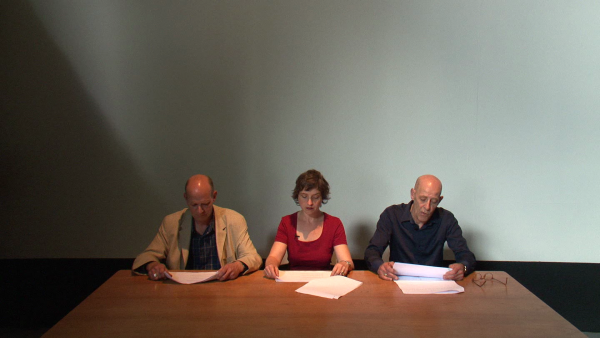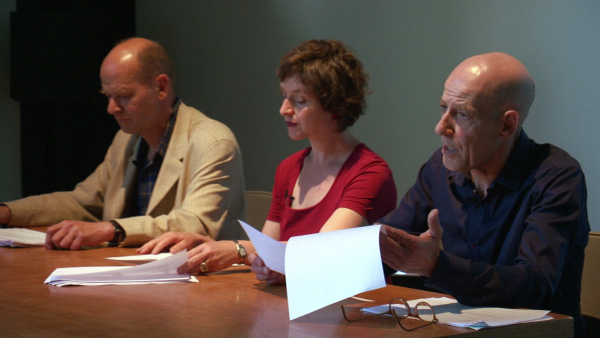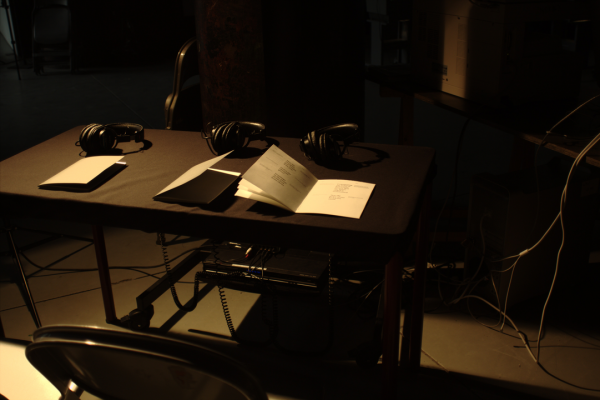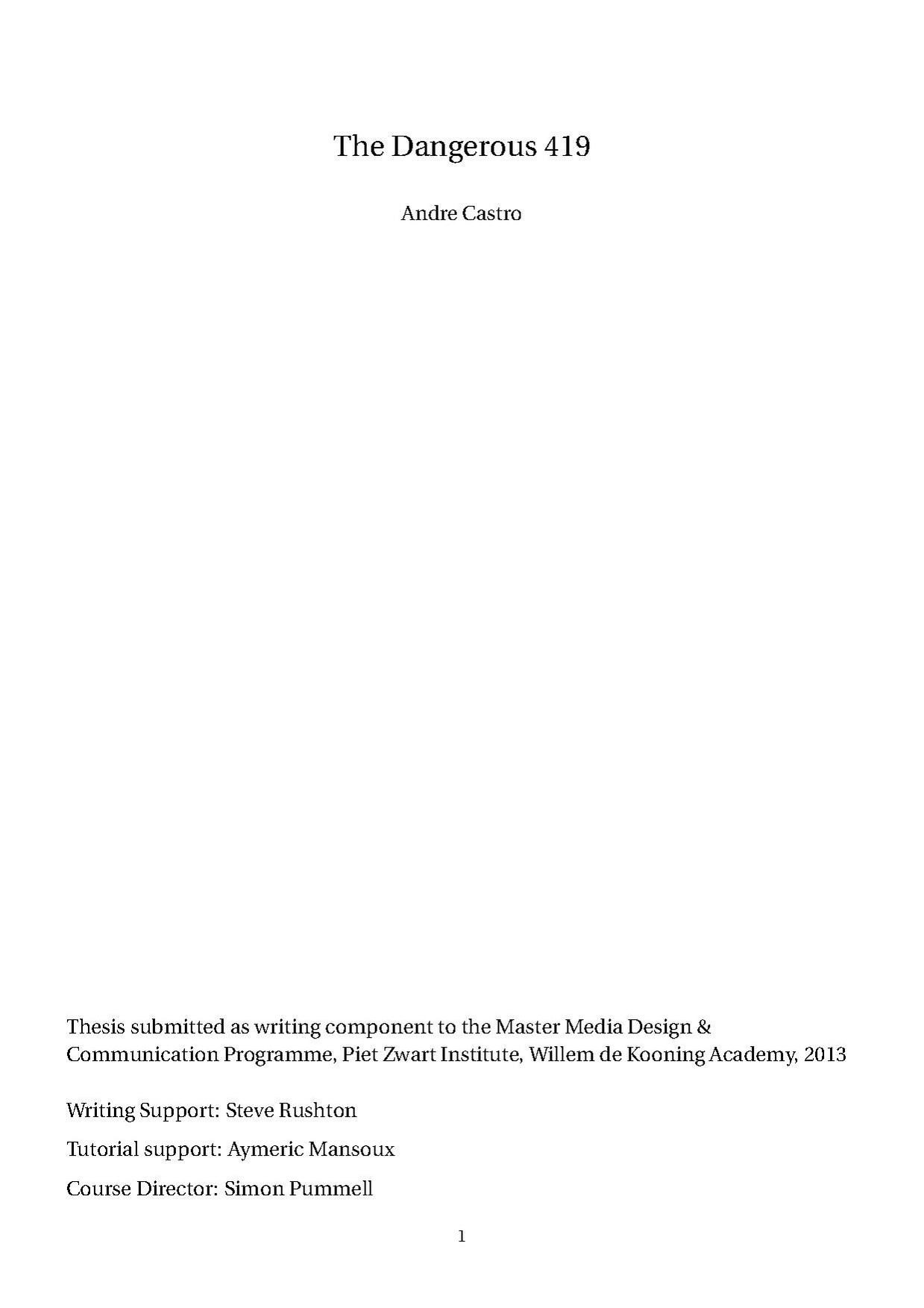User:Andre Castro/Trimester6 Narratives of Deception
Andre Castro, Graduation Project, Trimester 6, 2013.
Narratives of Deception
Description
Narratives of Deception narrates the dramas of the American soldier who captured Osama bin Laden; the daughter of Kenya's road minister who is threaten by her evil stepmother; and the sick and religious widow who writes from her hospital bed.
All these are stories that circulate through the infamous Nigerian fraud spam emails, known as 419s. The work was in great part an exercise in (un)creative writing, which tried to reveal and communicate the richness and various layers of these authorless stories. In the process re-writing and staging the work I aimed to achieve a result that would not obfuscate the original words with my own interpretation. Instead I tried to produce a work that would invite the audience to observe the intertwined network of texts, their formulaic nature, and the dramas from which the 419 narratives emerge.
Media
Photos
Video
File:Narratives Performance video.ogv
Short clip from the performance
File:Narratives process video.ogv
Video on the process by Michaela Lakova
Essay
Abstract
This thesis focuses on the phenomenon of Nigerian fraud spam emails, known collectively as 419s. Throughout the thesis I will propose the 419 as a minor literary genre. Such classification provides a framework to investigate the multilayered nature of the 419, and the various issues it touches upon. Considering the 419 as minor literary genre also opens up a context to reason about the kind of threat such unbelievable and incredible narratives constitute. The 419's peril, I propose, resides in its own dissimilarity, but also affinity, to advertising. It is this contrast which brings the unstable minor nature of the 419 to stand as a threat to the powerful figure of advertising.
Bibliography and References
- Apter, A. (1999). Ibb = 419: Nigerian democracy and the politics of illusion. In John, L. and Comaroff, J., editors, Civil Society and the Political Imagination in Africa, pages 267–307. The Universit of Chicado Press.
- BBC (2011). Report e-mail scams, national fraud authority urges. BBC News UK. http://www.bbc.co.uk/news/uk-12586742 Accessed: 17-05-2013.
- Burrell, J. (2012). Invisible Users: Youth in the Internet Cafés of Urban Ghana. MIT Press, London. http://monoskop.org/log/?p=6724 Accessed: 2013-03-10.
- Chude-Sokei, L. (2010). Invisible missive magnetic juju: On african cyber-crime. The Fanzine. http://thefanzine.com/invisible-missive-magnetic-juju-on-african-cyber-crime/ Accessed: 27-04-2013.
- Deleuze, G. and Guattari, F. (1986). Kafka: Towards a Minor Literature. University of Minnesota Press, London.
- Deleuze, G. and Guattari, F. (1987). A Thousand Plateaus: Capitalism and Schizophrenia. University of Minnesota Press, London.
- Dyer, G. (1982). Advertising as communication. Routledge, London.
- Glickman, H. (2005). The nigerian "419" advance fee fraud. Canadian Journal of African Studies, 39(3):406 – 489.
- Klein, N. (2001). No Logo. Flamingo, London.
- Shankland, S. (2008). Ascii: An artful way around spam filters. CNET. http://news.cnet.com/8301-1023_3-10025917-93.html Accessed: 03.05.2013.
- Steyerl, H. (2012). The spam of the earth: Withdrawal from representation. E-flux, 02(32). http://www.e-flux.com/journal/the-spam-of-the-earth/ Accessed:03-05-2013.
- Wikipedia (2013a). Ascii art. http://en.wikipedia.org/wiki/ASCII_art. Accessed: 03.05.2013.
- Wikipedia (2013b). Laurence Canter and Martha Siegel. http://en.wikipedia.org/wiki/Laurence_Canter_and_Martha_Siegel.
Accessed: 19.05.2013.
- Wikipedia (2013c). Spam. https://en.wikipedia.org/wiki/Wikipedia:Spam. Accessed: 03.05.2013.
- Williams, R. (1980). Advertising: the magic system. In Culture and Materialism, pages 170–195. Verso, London.
Project url: http://deceptionnarrativ.es/






